#San Giovanni Rotondo
Text
SAN PIO DA PIETRELCINA, sacerdote cappuccino.


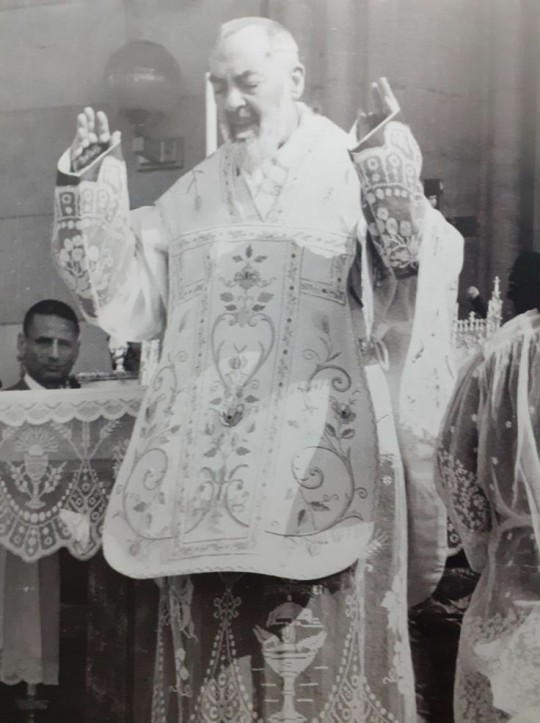

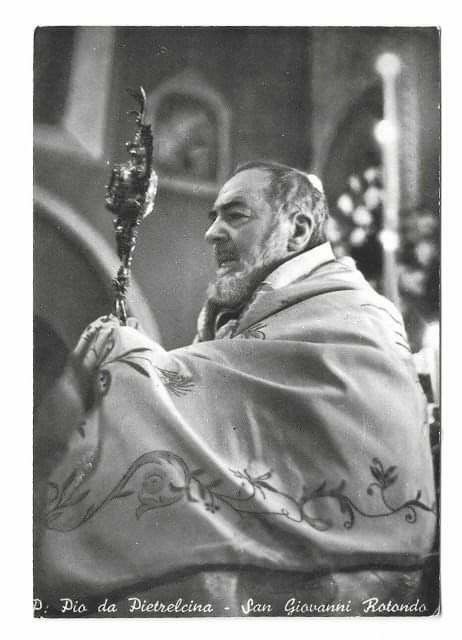
#catholicism#chiesa cattolica#christianity#spirituality#San Pio da Pietrelcina#padre pio#san Giovanni Rotondo#francescani#frati Cappuccini#san francesco
36 notes
·
View notes
Text
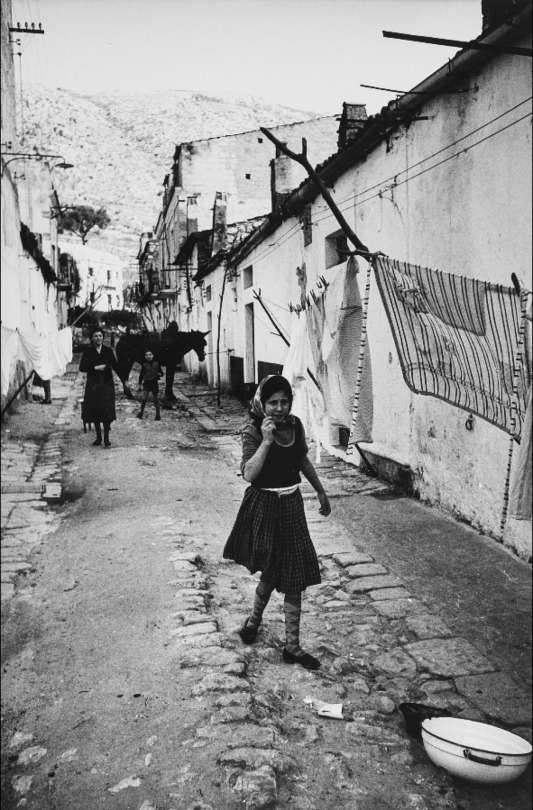
Tre ore a San Giovanni Rotondo (Foggia) Italia. 1950s
Foto: Mario De Biasi
24 notes
·
View notes
Text
Un albero di smisurata grandezza
Con la venuta di padre Pio a San Giovanni Rotondo si concretizzò un prestabilito disegno di Dio.
Continue reading Untitled
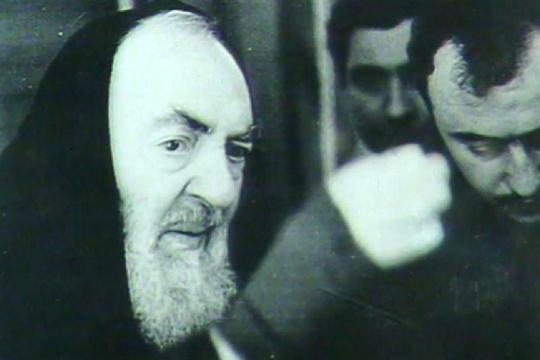
View On WordPress
#approfondimenti#fioretti#Lucia Fiorentino#padre pio#Padre Pio da Pietrelcina#San Giovanni Rotondo#san pio da pietrelcina#testimoni#testimonianze
2 notes
·
View notes
Text
Il Natale di Padre Pio
Il Natale di Padre Pio
Padre Pio, il piccolo frate che da Pietrelcina divenne il punto di riferimento di San Giovanni Rotondo, viveva il Natale con una grande serenità spirituale.
Infatti Padre Ignazio da Ielsi, che fu superiore del convento di San Giovanni Rotondo dal 1922 al 1925, nel suo diario disse che “È inutile dire con quanta passione Padre Pio celebra il Natale. Sempre vi pensa e conta i giorni che lo…
View On WordPress
#arte#Campania#cultura#Gesù Bambino#natale#Padre Pio#Pietralcina#presepe#puglia#San Giovanni Rotondo
0 notes
Text
Giuseppe Conte overthrows the government and then goes on vacation. No photos and football with friends
Giuseppe Conte overthrows the government and then goes on vacation. No photos and football with friends
Giuseppe Conte took a few days off to “recharge before the electoral battle”. The political leader of the 5 Star Movement is at his home in San Giovanni Rotondo, Puglia, where his parents live. An indiscretion published by the newspaper La Repubblica and confirmed by the same Conte during a live broadcast on his social networks.
Also according to La Repubblica “On Monday, July 25, the former…
View On WordPress
0 notes
Text
Promontorio Music Fest 2022: la prima edizione al via sul Gargano
Il 22 e il 23 luglio al Poggio Active Hotel di San Giovanni Rotondo si terrà la prima edizione di Promontorio Music Fest
Prenderà piede il 22 e il 23 luglio al Poggio Active Hotel di San Giovanni Rotondo, nel cuore del Parco Nazionale del Gargano, la prima edizione di Promontorio Music Fest, un weekend di musica indipendente a volumi alti per i 10 anni di attività dell’ufficio stampa Doppio Clic Promotions.
Un nuovo festival alternativo che raggruppa un po’ di nomi caldi del sottobosco musicale italiano e che mira…
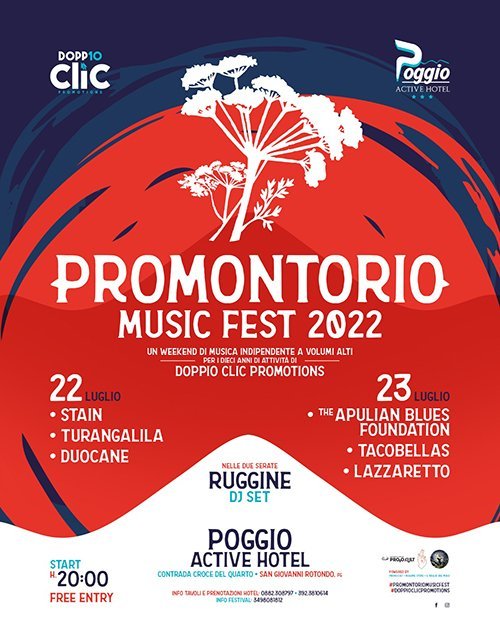
View On WordPress
#2022#duocane#lazzaretto#poggio active hotel#promontorio music fest#san giovanni rotondo#stain#tacobellas#the apulian blues foundation
0 notes
Text
Venite a bussare alla mia tomba
Venite a bussare alla mia tomba
Padre Pio un giorno disse ai suoi figli spirituali, ma tale esclamazione valeva non solo per loro ma per chiunque un giorno l’avrebbe fatto, di bussare alla sua tomba. Bussare alla tomba di padre Pio dunque, ci da garanzia che lui ci ascolterà.
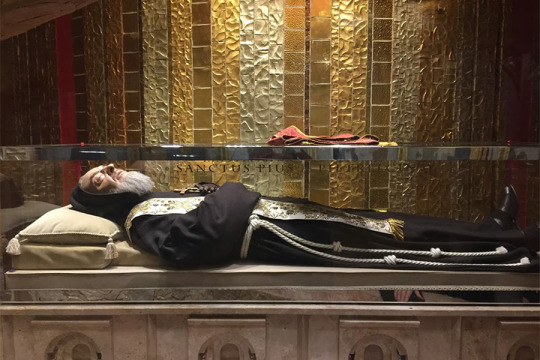
View On WordPress
0 notes
Text
On the 23th of September is the feast day of St. Pio of Pietrelcina, priest
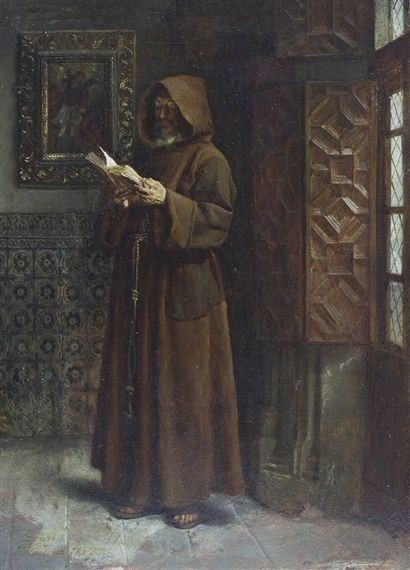
Ignacio de Leon y Escosura: Franciscan Monk Reading
Life of St. Pio of Pietrelcina
In one of the largest such ceremonies in history, Pope John Paul II canonized Padre Pio of Pietrelcina on June 16, 2002. It was the 45th canonization ceremony in Pope John Paul’s pontificate. More than 300,000 people braved blistering heat as they filled St. Peter’s Square and nearby streets. They heard the Holy Father praise the new saint for his prayer and charity. “This is the most concrete synthesis of Padre Pio’s teaching,” said the pope. He also stressed Padre Pio’s witness to the power of suffering. If accepted with love, the Holy Father stressed, such suffering can lead to “a privileged path of sanctity.”
Many people have turned to the Italian Capuchin Franciscan to intercede with God on their behalf; among them was the future Pope John Paul II. In 1962, when he was still an archbishop in Poland, he wrote to Padre Pio and asked him to pray for a Polish woman with throat cancer. Within two weeks, she had been cured of her life-threatening disease.
Born Francesco Forgione, Padre Pio grew up in a family of farmers in southern Italy. Twice his father worked in Jamaica, New York, to provide the family income.
At the age of 15, Francesco joined the Capuchins and took the name of Pio. He was ordained in 1910 and was drafted during World War I. After he was discovered to have tuberculosis, he was discharged. In 1917, he was assigned to the friary in San Giovanni Rotondo, 75 miles from the city of Bari on the Adriatic.
On September 20, 1918, as he was making his thanksgiving after Mass, Padre Pio had a vision of Jesus. When the vision ended, he had the stigmata in his hands, feet, and side.
Life became more complicated after that. Medical doctors, Church authorities, and curiosity seekers came to see Padre Pio. In 1924, and again in 1931, the authenticity of the stigmata was questioned; Padre Pio was not permitted to celebrate Mass publicly or to hear confessions. He did not complain of these decisions, which were soon reversed. However, he wrote no letters after 1924. His only other writing, a pamphlet on the agony of Jesus, was done before 1924.

Source of picture: https://nationalgeographicscans.tumblr.com
Padre Pio rarely left the friary after he received the stigmata, but busloads of people soon began coming to see him. Each morning after a 5 a.m. Mass in a crowded church, he heard confessions until noon. He took a mid-morning break to bless the sick and all who came to see him. Every afternoon he also heard confessions. In time his confessional ministry would take 10 hours a day; penitents had to take a number so that the situation could be handled. Many of them have said that Padre Pio knew details of their lives that they had never mentioned.
Padre Pio saw Jesus in all the sick and suffering. At his urging, a fine hospital was built on nearby Mount Gargano. The idea arose in 1940; a committee began to collect money. Ground was broken in 1946. Building the hospital was a technical wonder because of the difficulty of getting water there and of hauling up the building supplies. This “House for the Alleviation of Suffering” has 350 beds.
A number of people have reported cures they believe were received through the intercession of Padre Pio. Those who assisted at his Masses came away edified; several curiosity seekers were deeply moved. Like Saint Francis, Padre Pio sometimes had his habit torn or cut by souvenir hunters.
One of Padre Pio’s sufferings was that unscrupulous people several times circulated prophecies that they claimed originated from him. He never made prophecies about world events and never gave an opinion on matters that he felt belonged to Church authorities to decide. He died on September 23, 1968, and was beatified in 1999.
Source: https://www.franciscanmedia.org/saint-of-the-day/saint-pio-of-pietrelcina
#saints#St. Pio of Pietrelcina#priest#This is the most concrete synthesis of Padre Pio’s teaching#a privileged path of sanctity#House for the Alleviation of Suffering#The Gospel image of ‘yoke’ evokes the many trials that the humble Capuchin of San Giovanni Rotondo endured.#Today we contemplate in him how sweet is the ‘yoke’ of Christ and indeed how light the burdens are whenever someone carries these with faith#yoke#God#Jesus#Christ#Jesus Christ#Father#Son#Holy Spirit#Holy Trinity#christian religion#faith#hope#love#stress reliever
14 notes
·
View notes
Text
SAINT OF THE DAY (September 23)
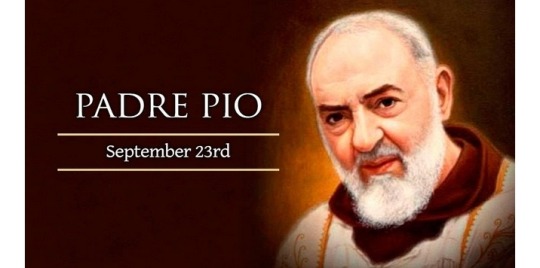
On September 23, the Catholic Church remembers the Italian Franciscan priest St. Pio of Pietrelcina, better known as “Padre Pio," who is known for his suffering, humility and miracles.
The man later known by these names was originally named Francesco Forgione, born to his parents Grazio and Maria on 25 May 1887.
His parents had seven children, two of whom died in infancy.
They taught the five surviving children to live their faith through daily Mass, family prayer of the rosary, and regular acts of penance.
Francesco had already decided at a young age to dedicate his entire life to God.
At age 10, he felt inspired by the example of a young Capuchin Franciscan and told his parents: “I want to be a friar – with a beard.”
Francesco’s father spent time in America working to finance his son’s education, so he could enter the religious life.
On 22 January 1903, Francesco donned the Franciscan habit for the first time.
He took the new name Pio, a modernized Italian form of “Pius,” in honor of Pope St. Pius V.
He made his solemn vows four years later and received priestly ordination in the summer of 1910.
Shortly after, he first received the Stigmata – Christ’s wounds, present in his own flesh.
Along with these mystical but real wounds, Padre Pio also suffered health problems that forced him to live apart from his Franciscan community for the first six years of his priesthood.
By 1916, he managed to re-enter community life at the Friary of San Giovanni Rotondo, where he lived until his death.
He handled many duties as a spiritual director and teacher, covering for brothers drafted into World War I.
During 1917 and 1918, Padre Pio himself briefly served in a medical unit of the Italian army.
He later offered himself as a "spiritual victim” for an end to the war, accepting suffering as a form of prayer for peace.
Once again, he received the wounds of Christ on his body. They would remain with him for 50 years, through a succession of global conflicts.
Against his own wishes, the friar’s reputation for holiness and attending miracles began to attract huge crowds.
Some Church officials, however, denounced the priest and had him banned from public ministry in 1931.
Pope Pius XI ended the ban two years later, and his successor Pius XII encouraged pilgrimages to Padre Pio’s friary.
Known for patient suffering, fervent prayer and compassionate spiritual guidance, Padre Pio also lent his efforts to the establishment of a major hospital, the “Home to Relieve Suffering.”
Padre Pio died on 23 September 1968 at the age of 81.
Three years after his death, Pope Paul VI marveled at his simple and holy life in an address to the Capuchin Order.
Pope John Paul II beatified him on 2 May 1999 and canonized on 16 June 2002.
He is the patron saint of adolescents, stress relief, civil defense volunteers, and January blues.
“A worldwide following gathered around him ... because he said Mass humbly, heard confessions from dawn to dusk and was – it is not easy to say it – one who bore the wounds of our Lord,” Pope Paul VI explained. “He was a man of prayer and suffering.”
1 note
·
View note
Text
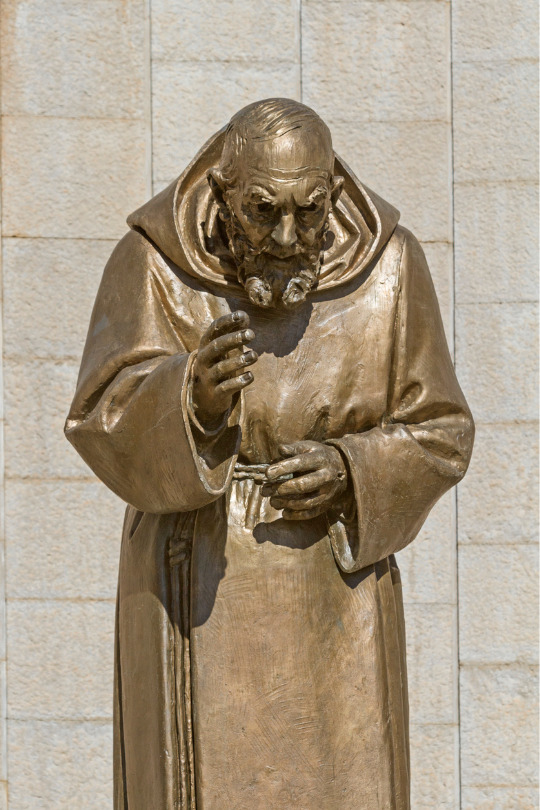
"Saint Pio of Pietrelcina, Pray for Us!” #SaintoftheDay #OraProNobis
📷 Statue of Saint Padre Pio, San Giovanni Rotondo, Foggia, Apulia, Italy / © Tinieder / #GettyImages / #CanvaPro. #Catholic_Priest #CatholicPriestMedia
30 notes
·
View notes
Text

Meditations of St. Padre Pio – Part 5 (Concluding Meditation)
Padre Pio was at the height of his priestly apostolate with multitudes of pilgrims visiting him, for his Mass, to confess to him, and to ask him for prayers and counsel. He was a master of souls; he directed everyone with penetrating words full of deep meaning. His series of "Meditations" was the first complete text of Padre Pio's thoughts. These texts consists of Padre Pio's meditations upon the fundamental dogmas of the Catholic faith. The Immaculate Conception and the Incarnation of Jesus. He then relives Jesus' agony in the garden of olives. Next he reflects on the human condition, and on our need to turn to God in the passing of our days. These are not conventional texts; they are reflections derived from the contemplation of the absolute Truth. “Mary Immaculate” is a more theological text. The others are more human and simple.
Padre Pio, in the first years of his residence in San Giovanni Rotondo (1918 – 1920), when he was freer from the care of souls, wrote a few meditations for his novices and his spiritual daughters of the Franciscan Third Order. They were the text of his lectures or instructions that he gave weekly as their Spiritual Director. After that, between the years 1925 – 1928, Padre Pio compiled other meditations. Fr. Agostino of San Marco in Lamis affirms it in his "Diary:" The Provincial, Fr. Bernardo of Alpicella, once suggested to Padre Pio to “compile a few meditations for the principal feasts of the year for our seminarians.” When Padre Pio was shown the possibility of publishing these meditations, he said: "I have written these things for myself." But, when it was explained to him that "they would do a lot of good to our souls" he smilingly said: "if it is as you say, bonum est diffu sivum sui (good, by its nature, is destined to be spread).
Meditation - Part 5 - The Agony of Jesus In The Garden - Holy Hour
J. M. J. – D. F. C.
Note: The initials J. M. J. – D. F. C. Stands for Jesus, Mary, Joseph – Dominic, Francis, Catherine
The cross is always ready and awaits you at every turn." – Imitation of Christ
(Maxim which appears on the door of Padre Pio's cell No. 1)
O Divine Spirit, enlighten and inflame me as I meditate on the Passion of Jesus. Help me to fathom this mystery of the infinite love and suffering of a God who clothed himself in our human nature and endured suffering, agony and death for love of his creatures. The eternal, immortal God stoops down and humbles himself to the point of enduring the greatest martyrdom, the ignominious death of the Cross, covered with insults, contempt and infamy, in order to save the creature who has offended him and wallowed in the filth of sin. Man takes pleasure in sin and because of his sin his God is saddened, suffers and sweats blood in the most appalling spiritual agony. No, I cannot fathom this boundless ocean of love and sorrow unless your grace sustains me. Let me enter into the deepest recesses of the Heart of Jesus, to read there the essence of his bitter sorrow which reduced him to the point of death there in the Garden. Let me comfort him with my love, forsaken as he is by his Father and by his own. May I be able to join him in order to expiate in union with him.
O most sorrowful Mother Mary, unite me with you that I may follow Jesus and share his sufferings and your own sorrow.
O my dear Guardian Angel, guard my faculties and keep them recollected in my suffering Jesus, so that they may not stray far from him. Amen.
I
At the end of his earthly life, the divine Redeemer, having left us his whole self in the form of food and drink in the Sacrament of Love and having fed his Apostles with his immaculate Flesh, makes his way together with his own to the Garden of Olives, a place well-known to the disciples and to Judas himself. Along the way leading from the Cenacle to the Garden, Jesus instructs his disciples. He makes them ready for the coming separation, for his imminent Passion, and prepares them to suffer calumnies, persecution and even death itself for his sake, showing them how to imitate him, their divine Model.
I shall be with you. Do not be troubled. O disciples, for the divine promise will never fail; of this you will receive proof at this solemn hour.
He is about to enter on his grievous Passion and rather than thinking of himself he is full of concern for them.
Oh, what immense love is contained in that Heart. His countenance is suffused with sadness and love at the same time and his words come from the depths of his Heart. He speaks with deep affection, he encourages and comforts them; he promises to console them and explains the deepest mysteries of his Passion.
O Jesus, I have always been deeply moved by this journey from the Cenacle to the Garden, by the effusion of a love that poured itself out so freely and was merged with your loved ones, by the outpouring of a love that is about to sacrifice itself for others to redeem them from slavery. You have taught us that there is no greater proof of love than to lay down one's life for one's friends and you are now about to seal this proof of love with the sacrifice of your own life.
Who can fail to marvel in such a generous oblation?
When they reach the Garden, the divine Master dismisses the disciples and takes with him only three of them, Peter, James, and John, that they may witness his suffering. Would this same trio who saw him transfigured on Tabor between Moses and Elias and acknowledge him as God, would they be strong enough to recognize him now as the Man-God in the midst of mortal agony and sorrow? As they enter the Garden he says to them: Remain here, watch and pray that you may not enter into temptation. Be on your guard, he seems to tell them, because the enemy does not sleep; protect yourselves against him beforehand with the weapon of prayer, so that you may not be led into sin. This is the hour of darkness. With this recommendation he goes apart from them a stone's throw and falls prostrate on the ground.
He is extremely sad: his soul is a prey to indescribable sorrow. The night is far advanced and the air is clear. The moon glows high above, leaving the Garden in semi-shadow. Occasional ominous flashes of light breakthrough the shadows, seeming to herald some serious and sinister events, producing shivers and freezing the blood in one's veins. The light seems tinged with the color of blood. A wind which gives warning of a coming storm stirs the olive trees and with the rustling of the leaves seems to reach one's very bones like a herald of death, going right down into the soul and filling it with mortal sadness.
This is the most dreadful night, the like of which will never again be known.
What a contrast, O Jesus. How beautiful was the night of your birth, when the jubilant angels announced peace and chanted their Gloria. Now it seems to me that they are circling around you at a respectful distance, as if in recognition of the supreme anguish of your soul.
This is the place to which Jesus comes to pray. He deprives his sacrosanct human nature of the strength conferred on it by his divinity and subjects it to indescribable sadness, to extreme weakness, to sorrow and desolation, to mortal anguish. His soul is plunged in this grief as in a boundless sea which at every moment seems about to overwhelm him. There appears before his mind the entire martyrdom of this approaching Passion which, like a torrent overflowing its banks, pours into his Heart to torture, oppress and tear it to
pieces. First of all, he sees Judas, the disciple he loves so dearly, who sells him for a few coins, who is at this moment drawing near to the Garden to betray him and hand him over to his enemies. He, the friend and disciple whom only a short while earlier he has fed with his Flesh. Prostrate before him he has washed his feet and clasping them to his Heart has kissed them with all the tenderness of a brother, as if he intended by the power of love to dissuade him from his impious and sacrilegious plan, or at least that when he has
committed this crazy crime he may enter into himself and recalling all these proofs of love, repent and be saved. But no, he is lost, and Jesus weeps over his willful loss.
Jesus beholds himself bound by his enemies and dragged through the streets of Jerusalem, through those same streets which a few days earlier he traversed in triumph, acclaimed as the Messiah. He sees himself before the High Priest where he is beaten, declared guilty and deserving of death. He, the Author of life, led from one court to another to appear before judges who condemn him. By his own people whom he has loved and to whom he has given so much he sees himself insulted and ill treated, while with devilish shouts and hisses they clamor for his death, his death on the Cross. He hears their false accusations, sees himself condemned to the most merciless scourging, crowned with thorns, derided, mockingly addressed as King, slapped in the face.
Finally, he beholds himself condemned to the shameful death of the Cross and mounting the hill of Calvary, reduced to extreme weakness from loss of blood, falling to the ground several times beneath the weight of the Cross. Then he sees himself reaching the hilltop where he is stripped and laid upon the Cross, mercilessly crucified and raised up on the Cross in the sight of all, where he hangs by three nails which tear and dislocate veins and bones and flesh. O God! What a long three hours of agonizing torture he endures amid the insults of an insane and merciless throng.
He sees himself with throat and internal organs racked by burning thirst, while this agonizing torture is increased by the taste of vinegar and gall.
He sees himself abandoned by the Father, and witnesses the desolation of his Mother at the foot of the Cross.
Finally, he beholds his ignominious death between two thieves, one of whom recognizes and acknowledges him as God and is saved, while the other blasphemes and insults him and dies in despair.
He sees Longinus approach him and with supreme insolence and contempt rip open his side. Then, like all mortal men, he is subjected to the humiliation of the tomb.
All these things pass before his gaze to torture him and Jesus is seized with terror. This terror takes possession of his divine Heart, holds it fast and lacerates it. He trembles as though in the throes of a very high fever, he is overcome by terror and his soul languishes in deadly sorrow. He, the innocent Lamb, alone, abandoned to the wolves, deprived of all defense. He, the Son of God, the Lamb who has offered himself voluntarily to be sacrificed for the glory of that same Father who abandons him to the fury of the powers of Hell, for the Redemption of the human race. His own disciples have become cowards and desert him, fleeing from him as from the most dangerous of men. He, the Eternal Word of God, becomes the laughingstock of his enemies.
Does he withdraw? No, from the very start he generously embraces all without reserve.
What is this terror and what is its origin? What is this deadly fear? Ah! He has exposed his human nature as a target to receive all the blows of divine Justice injured by sin. In his naked soul he experiences keenly all that he will have to suffer, each single sin that he will have to expiate with its own particular punishment. He falls prostrate because his human nature is a prey to weakness, fear and terror.
He seems to have reached the extreme limit. He lies prostrate, face to the ground, before the Majesty of his Father. That divine countenance, which keeps the angels and saints of heaven in ecstasy in eternal admiration of its beauty, on earth is completely disfigured. My God! My Savior! Are you not the God of heaven and earth, equal in all things to your Father, you who humble yourself to the point of almost losing the likeness of man?
Ah, yes, I understand that it is in order to teach me, proud as I am, that I must be plunged into the depths of the earth if I am to have relations with heaven. It is in order to make reparation and to expiate for my arrogance that you bow down in this way before your Father; it is so draw down on mankind his merciful gaze which has been withdrawn because of man's rebellion against him. Because of your humiliation he forgives the proud creature. It is in order to make peace between earth and heaven that you fall prostrate to the ground as if to bestow on it the kiss of peace. O Jesus, may you be blessed and thanked forever by all men for all the humiliations and abasement by which you have given us God and united us to him in an embrace of holy love.
II
Jesus rises and looks up beseeching and sorrowfully to heaven. He raises his arms and prays. Dear God, how deadly pale is that face! He prays to the Father who seems to turn his gaze elsewhere and appears ready only to strike him with his avenging sword, with all the fury of an offended God. Jesus prays with all the trust of a Son, but he is fully aware of the task that is his. He recognizes that he alone, on behalf of all, is the One who has outraged the divine Majesty. He realizes that it is he alone, by the sacrifice of his life, who can satisfy the divine Justice and reconcile the creature with the Creator. He longs for this and he desires it efficaciously. But his human nature is terrified at the sight of his bitter Passion. It wants to refuse it all, but his soul is prepared for the sacrifice and does battle with all its strength. He feels stricken but he struggles furiously.
O my Jesus, how can we draw strength from you when we see you so exhausted and stricken?
I understand how it is: you have taken upon yourself all our weaknesses. It is in order to bestow your strength on us that you have collapsed like this. It is in order to teach us that we must placed our trust in you alone during life's battles, even when heaven seems closed against us.
In his extreme affliction Jesus cries out to the Father: If it be possible, let this cup pass from me. This is the cry of his human nature which in its affliction has recourse with confidence to heavenly aid. Although he is aware that his plea will not be granted, since this is his own will, he prays. O my Jesus, why do you ask for what you do not want to be granted? The reason is suffering and love.
Here is the great secret. The sorrow that afflicts you leads you to us for help and comfort, but your desire to appease the divine Justice and restore us to God makes you cry out: Not my will, but thine, be done. In face of this prayer, heaven remains hard as stone.
His broken Heart is in need of comfort. The abandonment he experiences, the battle he is bearing all alone seems to drive him to look for someone who will comfort him. Slowly, then, he rises, and almost staggering he moves off in the direction of his disciples in search of comfort. These men who have lived with him for so long, these trusted ones, will be able to understand his interior anguish and the trial he must undergo in order to end it. They will be able to give him a little comfort.
But what a disappointment! He finds them fast asleep and he feels even more fully alone in that boundless spiritual solitude. He draws near to them and calls them. Then turning quietly to Peter he says: Simon, are you asleep? You who protested that you would follow me until death and would give your life for me, are you sleeping? Then turning to the others he adds: So, could you not watch with me one hour? The complaint of the Lamb who has offered himself to be sacrificed, the complaint of a wounded Heart that is suffering
intensely, alone and deprived of all comfort.
But he revives as if from a weakness and forgetful of himself and of what he is suffering, full of concern and love for them, he adds: Watch and pray that you may not enter into temptation. It is as if he meant to say: If you have forgotten me so quickly, while I struggle and suffer, watch and pray and least for your own sake. But the disciples, heavy with sleep, hardly notice the voice of Jesus. They barely distinguish him as a shadowy figure, so that they do not observe his face is disfigured by the interior anguish which torments him.
O Jesus, how many generous souls, touched by your cry of grief, have kept you company there in the Garden, sharing your sorrow and your mortal anguish. How many hearts in the course of the centuries have replied generously to your invitation. In this supreme hour, then, may this company of souls bring you some comfort, sharing with you more than your disciples did the sorrow of your Heart and cooperating with you towards their own salvation and the salvation of others. Allow me also to be numbered among them so that I too may bring you a little relief.
III
Jesus has returned to his place of prayer and another picture more dreadful than the previous one is presented to his gaze. All our sins with all their filthiness past in detail before his eyes. He beholds all the wickedness and malice of creatures as they commit these sins. He knows to what an extent these sins injure and outrage the Majesty of God. He sees all the obscenity, the immodesty, the blasphemies which rise up from the lips of creatures, accompanied by the wickedness of their hearts, of those hearts and lips which were made to send up nothing but hymns of praise and blessing to the Creator. He sees the sacrileges by which priests and people are defiled, indifferent to the Sacraments instituted for our salvation as the necessary means for the communication of divine grace, but which have become, instead, the means of sin and condemnation for souls. With this filthy mass of human corruption he has clothed himself and appears before the holiness of his Father, to expiate for each sin by a separate punishment, to render to God all the glory they have denied him, to cleanse that sewer in which men are plunged with contemptuous indifference.
Nothing of all this holds him back. Like a surging sea this mass sweeps down on him, surrounds and overwhelms him. Behold him before his Father, facing all the anger of his divine Justice. He who is the essence of purity, he who is holiness by nature, in contact with sin! In fact it is as if he himself has become a sinner. Who can fathom the disgust he experiences in the depths of his soul? The horror he feels? The nausea, the repugnance he experiences? Since he has taken all these things without exception upon himself, this immense load crushes and overwhelms him, throws him to the ground and leaves him prostrate. Exhausted, he groans beneath the weight of the divine Justice, before his Father who turns on him ready to strike him like an accursed being with his full fury.
He would like to shake off this immense load that is crushing him. He would like to throw off this dreadful weight which makes him shudder. His very purity rejects him as does the angry gaze of his Father who abandons him to these turbid and polluted waters of sin in which he sees him immersed. Everything combines within his soul to induce him to withdraw from this bitter Passion. Nature fights against itself and everything tells him to cast off this filthiness and to refuse this mediation. But the image of Justice unappeased, on the sinners not yet reconciled, prevails in his Heart brimming over with love.
These two forces, these two loves, one holier than the other, fight for victory in the Savior's Heart. Which will prevail? Undoubtedly he wants to grant the victory to outraged Justice. This takes first place and he wants it to triumph. But what is the image he is to show forth? The image of one sullied by all the filthiness of men? Is he, the very substance of holiness, to see himself filthied by sin, even apparently? No, not this. It frightens him, it fills him with fear and terror.
As if seeking the solution to this harsh situation he has recourse to prayer. Prostrate before the Majesty of his Father, he cries out: Father, let this cup pass from me. As if he wanted to say: My Father, I want your glory, I want your Justice to be satisfied in full. I want the family of mankind to be reconciled to you. Must I who am the same holiness as yourself see myself sullied by sin? Ah, no, this is not to be! Let this cup pass from me, then, and you, to whom all things are possible, find some other means in the infinite treasury of your
Wisdom. But if you do not want this, then: Not my will, but thine, be done!
IV
This time also the Savior's prayer fails to have affect. He feels he is dying and with great difficulty he interrupts his prayer to go in search of comfort. He feels utterly deprived of strength and he staggers, panting, towards his disciples. Once more he finds them sleeping. This increases his sorrow and he merely arouses them. How confused they must feel. But Jesus says nothing to them this time; he only appears immensely distressed. He keeps to himself all the pain and affliction of that desertion, of that indifference and by his silence he seems to regard with indulgence the weakness of his own.
O Jesus, what suffering I read in your Heart already brimming over with anguish. I see you withdraw from your disciples in such deep grief. Ah! If I could only relieve you and comfort you even to a slight extent. But since I am unable to do anything else, I remain beside you and weep. Aware as I am of your great suffering, may my tears of love for you and of sorrow for my sins mingle with your own and made they rise up to the Father's throne and induce him to have mercy on you and on many souls who are still plunged in the sleep of sin and death.
Jesus returns once more to his place of prayer in great affliction and in a state of collapse. He falls to the ground rather than prostrating himself upon it. A mortal agony seizes him and he prays with greater
vehemence than before. The Father keeps his gaze averted, as if this were the most despicable of men.
I seem to hear all the laments of the Savior. Oh! If at least men for whom I am agonizing – he seems to say – and on behalf of whom I am ready to embrace everything, if only they were grateful and were to repay me with love for all the suffering I am enduring for them. If they only realized the high price with which I am about to ransom them from the death of sin so as to give them the true life of God's children. Ah, it is love that rends my Heart, more than the executioners will tear my flesh to pieces. But no, he sees men who are unable to profit from all this because they do not want to. Men will continue to curse this divine Blood and the loss will become more irreparable and unpardonable. Only a few will draw profit from it while the majority will hasten on their way to perdition! In the extreme anguish of his broken Heart, Jesus continues to repeat: Of what use is my blood? And he falls down again, utterly overcome.
But those few induce his divine Heart to remain on the battlefield, to face up to all the suffering and sorrow of his Passion and Death, in order to win for them the palm of victory. He no longer has anywhere to go to find comfort. Heaven is closed against him. Even men on their deathbed, beneath the load of their sins, indifferent and ungrateful, ignore Jesus' love for them. Jesus is in mortal agony, he is torn and tortured by love. His countenance has taken on the pallor of death, his eyes are dimmed, an indefinable sadness invades his whole being. My soul is sorrowful even unto death.
O Jesus, I seem to hear from your lips these words in tones of infinite sorrow! They reveal a profound sadness which wells up from the deepest recesses of your soul!
Fear shakes him and makes him tremble all over as a deadly anguish crushes him. He is nauseated by the evil smell of many sins and intense grief invades his soul: My soul is sorrowful unto death. O Jesus, my generous guarantor, these words of yours go straight to my heart. Oh, if I could only raise you up and comfort you. O Jesus, the contemplation of your great torment makes me weep with you.
Jesus! Jesus! He no longer listens to my cry! Love has made him his own executioner. He has fainted and fallen to the ground and from his face and his whole person blood is flowing to the ground. At first, I see it issuing in great drops from his pores, then these drops unite and the blood flows in streams to the ground. He no longer lies face downwards, but on his left side with outstretched arms, in a deadly collapse, his face and his whole body bathed in Blood, his eyes half-closed and almost lifeless, his mouth half-open, while his breast which previously was heaving is now enfeebled and almost motionless.
Jesus, my adored Jesus! Let me die along with you. Jesus! My contemplative silence, as I remain close to you in your death-throes, is more eloquent. Jesus! Your sufferings pierce my heart and I cast myself down beside you. My tears have dried and I groan along with you, for the cause that has reduced you to such agony and for your intense and infinite love which has brought you to this.
O Divine Blood. You pour spontaneously from the loving Heart of my Jesus; the flood-tide of pain, the extreme anguish, the fierce struggle he endures in driving you out of that Heart to ooze from his pores and stream down to the ground. Allow me to gather you up, O Divine Blood, especially your first drops, for I want to keep you in the chalice of my heart. This is the most convincing proof that nothing but love has forced you from the veins of my Jesus. Through you I want to cleanse myself and to purify every place that is contaminated by sin; I want to offer you to the Father.
This is the Blood of his beloved Son which has descended to the earth in order to purify it; it is the Blood of his Son, the Man-God, which goes up to his throne to placate his Justice which has been outraged by our sins. He is profusely satisfied.
But what am I saying? While the Father's Justice is satisfied; Jesus is not yet satiated with suffering. No, Jesus does not want to arrest at this point the outpouring of his love for men.
Man must be given an infinite proof of his love, he must see to what depths of ignominy this love will bring his Savior. He must recognize that his Redemption has been abundant. Even though the Father's infinite Justice measures the infinite value of his Most Precious Blood and is appeased, man, on the other hand, must have tangible proof that Jesus' love is not weary of suffering for him and does not stop here, but goes on to the extreme agony on the Cross, to the point of his ignominious death upon it.
Perhaps completely spiritual men can assess at least partially the love which brings Jesus to endure quite voluntarily this Agony here in the Garden, but those who are engrossed in material things and whose hopes are centered more on this world than on heaven need to see him agonizing and bleeding to death for them on a Cross, in order that they may be shaken by the sight of that Blood and that heartrending torment.
No, his loving Heart is not yet satisfied. He enters into himself once more and prays again: My Father, if this cup cannot pass unless I drink it, not my will, but thine, be done.
From now on, Jesus answers the loving cry of his Heart, the cry of the human race which, in order to be redeemed, demands his death. When the Father pronounces his death sentence, heaven and earth want to see him die. Jesus bows his adorable head in acceptance. Father, if this cup cannot pass unless I drink it, not my will, but thine, be done.
Now the Father sends an angel, an angelic messenger, to console Jesus. What comfort does God's angel bring to the strong God, the Master of the universe, invincible and omnipotent? Jesus allows himself to be susceptible to suffering. He has taken our weakness upon himself and it is the Man who suffers and agonizes. It is the miracle of his infinite love that makes him sweat Blood and reduces him to agony.
There are two reasons for his prayer to the Father: he prays on his own behalf and on ours. The Father does not hear him for his own sake, but wants him to die for us. I believe the angel, bowed down in reverence before Jesus, before this eternal Beauty now covered with Blood and dust, in deferent homage brings him the consolation of resignation to the divine will, imploring him for the glory of the Father and in the name of sinners to drink the chalice which from all eternity he has offered to drink for men's salvation. He prays in order to teach us once again that when our soul is desolate as his own, it is only through prayer that we should seek comfort from heaven.
He, our strength, will be ready to rescue us because he willed to take our miseries upon himself.
Yes, O Jesus, you have to drink the chalice to the very dregs, for you have now taken upon yourself the most agonizing death. O Jesus, may nothing ever have the power to separate me from you, neither life nor death. Following you during life, passionately attached to you, may it be granted to me to breathe my last with you on Calvary, so that I may ascend to you in glory. May I follow you in trials and persecution so that I may one day be worthy to come to you, to love you in the unveiled glory of heaven, to sing you a hymn of thanksgiving for all you have suffered.
But now Jesus rises to his feet, strong and invincible as a lion in battle. This Jesus who desired with great longing this banquet of Blood – with desire I have desired it – smooths his disheveled hair, wipes the blood from his face and with strong and decided steps makes his way to the exit of the Garden.
Where are you going, O Jesus? Are you not that Jesus whom I saw languishing there, a prey to fear, weariness, dread, prostration, desolation and terror? The same Jesus whom I saw trembling and crushed beneath the immense load of evil which was bearing down upon you?
Where are you going now so readily and resolutely and full of courage? To what are you exposing yourself?
Oh! I hear you say: The weapon of prayer has enabled me to win through and the spirit has overcome the weakness of nature; from prayer I have drawn strength and I am now ready to face up to anything. Follow my example and, when you suffer, deal with heaven just as I have done.
Jesus draws near to the three Apostles who are still sleeping. Emotion, the late hour of the night, the presentiment of some grievous event, of something irreparable that seems to be drawing near, as well as their own weariness, all this has plunged them into sleep, into an oppressive sleep that it seems impossible to shake off and which, even when it is shaken off, comes over them inexplicably again, so much so that Jesus has pity on them and says: The spirit is willing but the flesh is weak.
At the same time he has felt so keenly this desertion by his own that he exclaims: Are you still sleeping and taking your rest? He pauses there. With a great effort, at the sound of his footsteps, they open their eyes. Then Jesus continues: Behold, the hour is at hand, and the Son of man is betrayed into the hands of sinners. Rise, let us be going; see, my betrayer is at hand.
Jesus beholds everything with his all-seeing eye. He seems to be saying: You who are my friends and disciples are sleeping, but my enemies are on the watch and are busying themselves about my capture. You, Peter, who felt strong enough to follow me even to death, you are sleeping. From the very beginning you showed me signs of your weakness; but do not worry, for I have taken your weakness upon myself and have prayed for you. When you mend your ways, I shall be your strength and you will feed my lambs. You, John, are also sleeping. You who only a few hours ago, in ecstasy by reason of my love for you, counted the beats of this Heart, are you asleep? Rise, let us be going, this is no longer the time for sleep. The enemy is at the gates and the hour of the powers of darkness has come. Yes, let us be going. I am going forth voluntarily to my death. Judas is drawing near to betray me and I go forward with a step that is firm and sure and intend to place no obstacle to the fulfillment of the prophecies. My hour has come, the hour of great mercy for mankind.
In point of fact, there is the sound of approaching footsteps, a reddish glare from lighted torches shows through the trees of the Garden, while Jesus followed by his three disciples goes forward calmly and without flinching.
O Jesus, give me the same strength when in the light of misfortunes my weak nature rebels. Help me to face, as you did, cheerfully and tranquilly, all the sufferings and torments I may encounter in this land of exile. I unite entirely with your merits, your pains, your expiation, your tears, in order that I may cooperate with you in my salvation and flee from sin, which was the only reason for your sweat of Blood and which brought you to your death.
Destroy in me everything that is displeasing to you and with the fire of your love imprint your sufferings on my heart. Bind me so strongly to you, with bonds so tight and so delectable, that I may never more abandon you in your sufferings. Let me rest on your Heart in all the sorrows of life, to draw from it strength and refreshment. Let my soul cherish no other desire than to live by your side in the Garden and to be satiated by the sorrows of your Heart. Let my soul be inebriated by your Blood and be nourished by you on the bread of your sufferings. Amen.
18 notes
·
View notes
Text
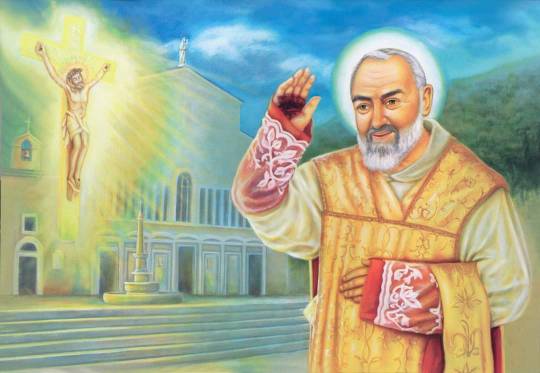
THE DESCRIPTION OF SAINT PIO OF PIETRELCINA (Padre Pio)
Feast Day: September 23
"Pray, hope, and don't worry."
Pio of Pietrelcina was born Francesco Forgione to Grazio Mario Forgione and Maria Giuseppa Di Nunzio, both were peasant farmers in Pietrelcina, a town in the province of Benevento, in the southern region of Campania, Italy on May 25th, 1887. He had an older brother, Michele, and three younger sisters, Felicita, Pellegrina, and Grazia (who was later to become a Bridgettine nun).
At a young age, he made the decision to dedicate his life to God, and began a life of penance. One day after listening to a Capuchin friar, who was seeking donations in the countryside, he determined to become a religious priest.
In 1903, he entered the Order of Friars Minor Capuchin, and took the name of Pio. After his ordination seven years later in 1910, he was assigned to the mountain convent of San Giovanni Rotondo, near Foggia, where he remained his whole life. Pio was endowed with exceptional spiritual gifts, such as reading the soul of his penitents, bilocation, experiencing heavenly visions and ecstasies. On the other hand, he was constantly afflicted with physical illness. He believed that the love of God is inseparable from suffering, and that suffering for the sake of God is the sure way to reach him. Pio was often obsessed by the devil, who terrified him with horrible screams and loud noises, or by burning and destroying the furniture of his room, or by brutally beating his body.
In 1910, Padre Pio received the stigmata of Our Lord: red marks appeared in his chest, hands and feet, accompanied by acute pain. At times, he also experienced the pain of the crowning with thorns and of the scourging.
Padre Pio died on September 23, 1968 in San Giovanni Rotondo at the age of 81, after making his last confession and renewing his Franciscan vows, while holding a rosary in his hands. Millions of pilgrims visited San Giovanni Rotondo during his lifetime, and many more afterwards. Pio was beatified by Pope St. John Paul II on May 2nd, 1999, and canonized as a saint by the same pope on June 16th, 2002 at the Vatican.
As Padre Pio had said: "After my death I will do more. My real mission will begin after my death."
10 notes
·
View notes
Text
The Flying Monk

WHEN NAZI FORCES SURRENDERED to the Allies in May 1945, a small group of American airmen were free to make a closer investigation into the odd happenings at San Giovanni Rotondo in Italy.
Beginning in 1944, the airmen’s squadron had repeatedly attempted to bomb the Italian city, where a large cache of German supplies were allegedly stockpiled. But on every bombing run something went wrong – their planes refused to release the bombs, or their targeting equipment malfunctioned and the bombs hit the nearby forest instead. The airmen blamed one person for these problems: the flying monk.
“The flying monk” was the name the airmen gave to the mysterious bearded figure who appeared in the sky every time they flew near San Giovanni Rotondo. Sometimes they just saw his face in the clouds. Other times the monk appeared as if he were standing in the sky. Usually his arms were raised, like he was issuing a warning or granting a blessing.
Dozens of airmen and at least one commanding officer had seen the monk, and as soon as the war ended they headed back to the scene of the events, wanting to know if the monk was who some believed him to be: the holy Capuchin friar of the city’s Our Lady of Grace Monastery, Padre Pio (now Saint Pio).
Sure enough, when the men arrived they recognized the saint as their flying monk. As one witness present at the meeting recalled, Padre Pio greeted the airmen with a friendly, “So you are the ones who wanted to kill us all!”
After his greeting, the Americans knelt and received his blessing. When they returned to America, the San Giovanni Rotondo they left behind was a city whole and intact...all thanks to the flying monk.

Saint Pio's feast day is September 23.
Saint Pio's icon is available at Monastery Icons in a wide variety of sizes and formats.
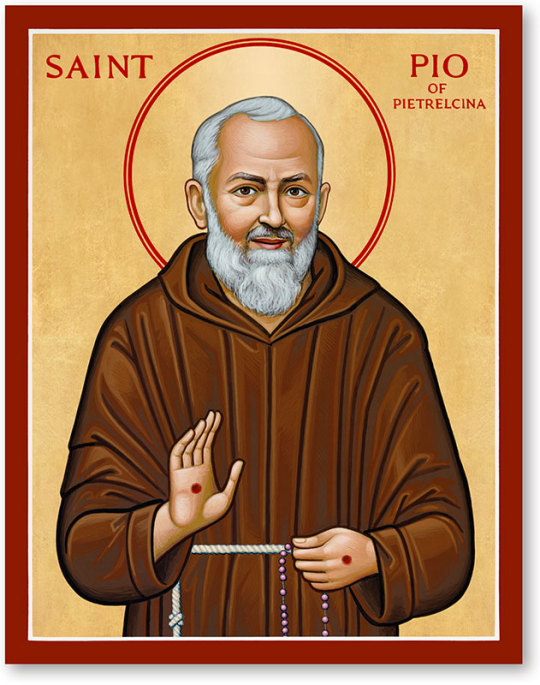
6 notes
·
View notes
Text
Padre Pio miracolato dalla Madonna
Nel 1959, padre Pio era molto ammalato e si pensava stesse morendo. Ma in occasione della visita della statua di Nostra Signora di Fatima a San Giovanni Rotondo, guarì improvvisamente.
Continue reading Untitled

View On WordPress
#beata vergine maria#fatima#fioretti#grazie#madonna#Marciano Morra#miracoli#padre pio#Padre Pio da Pietrelcina#roberto allegri#San Giovanni Rotondo#san pio da pietrelcina#testimoni#testimonianze
2 notes
·
View notes
Text

Padre Pio and the Sacred Heart - EWTN
“Padre Pio achieved intimate union with the most Sacred Heart of Jesus above all through intense faith which inspired his whole life, which enlightened all his difficult road, which inspired all his prayers and that sustained his heroic penances. Moreover, he lived in union with the Divine Heart really present in the Eucharist. “
link takes you to article at EWTN Library by the author Most Rev. Paolo Carta, Bishop Emeritus of Foggia [From the Voice of Padre Pio, June 1997, Friary of Our Lady of Grace, 71013 San Giovanni Rotondo, (FG), Italy. Used with permission of The National Center for Padre Pio, 2213 Old Route 100, Barto, PA 19504, through which a subscription may be obtained.]
5 notes
·
View notes
Text
11 notes
·
View notes